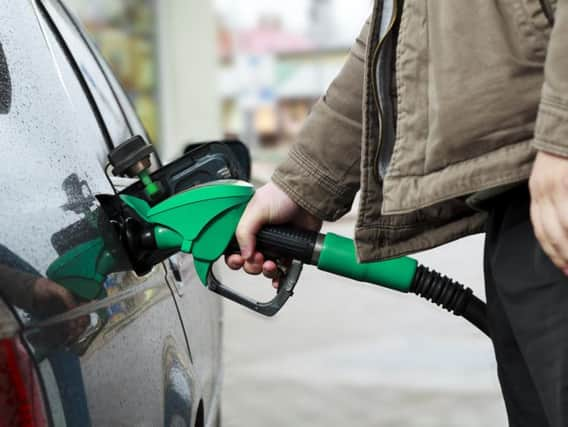Top tricks to save Portsmouth drivers cash at the petrol pump


It’s estimated that the average motorist will spend nearly £70,000 of their hard-earned cash filling up on fuel over their lifetime. It’s a hefty sum, and yet a few simple changes to the way we drive can help cut our petrol bill and help reduce our impact on the environment.
Insurance specialists Ageas recently put fuel efficiency to the test, with a before-and-after video challenge that had surprising results. Click here to see what happened.
Don’t waste money at the petrol station – use these clever motoring tips to save fuel and drive away happy.
Get in the zone
Get in the right frame of mind, be conscious of how you drive, what you use your car for and where you’re going.
Simply thinking carefully about our motoring habits – for example, instead of automatically jumping in the car for really short journeys, opting to walk or cycle instead; switching off an idle engine; turning off the air conditioning – will instantly save fuel and help the environment.
Shop smart
When it’s time to change cars, look closely at fuel efficiency data: fuel consumption of similar-sized cars can vary by as much as 45 per cent, while opting for the most fuel-efficient vehicle in its class can dramatically reduce emissions.
Shop around for cheaper fuel too.
On the road
Read the road ahead and prepare for changes in gradients, obstacles and other vehicles, so you can maintain a steady speed and avoid slamming on the brakes. According to fuel-economy.co.uk, aggressive accelerating and then braking can use up to 60 per cent more fuel.
Maintaining a steady speed helps too – cruise control is good for that. According to government statistics, driving at a steady pace of 50mph instead of revving up to 70mph can improve fuel economy by 25 per cent. Breaking the speed limit at 80mph burns up to 25 per cent more fuel than travelling at 70mph, according to What Car?
When going downhill, make the most of gravity then use the momentum to help get you back up the other side, rather than braking and accelerating.
Get in gear
Too many revs take a toll on your vehicle’s fuel; switch up to a higher gear as soon as it’s possible and safe.
The Department for Transport recommends petrol drivers should change up a gear before the rev-counter hits 2500rpm, and before it’s at 2000 rpm for diesel engines.
Plot your course
It’s impossible to avoid jams caused by unexpected incidents but checking traffic reports before you set off could save you time, stress and wasted fuel stuck in a queue of traffic.
Plan your journey to avoid making too many stops: a cold engine tends to use twice as much fuel as a warm one.
Weigh it up
Extra weight forces your vehicle to work a little bit harder. Just decluttering the boot can help: the RAC says offloading 50kg from the boot will make a 2 per cent fuel saving.
Remember fuel adds weight as well. Unless you need a full tank of fuel for a long journey, stick to half a tank.
Have a look at bike and roof racks too – they’ll add to the drag and force your car to work a bit harder, costing fuel, so remove them when not in use.
Little things add up
Air conditioning and heating systems put extra strain on an engine, so use sparingly.
If you drive a modern car with engine stop-start technology, keep your foot off the clutch when stationary to help save on fuel consumption.
And make sure your car is well-maintained: good tyre pressure is vital to reduce resistance.
Want to know more? Go to www.ageas.co.uk to read more about driving with Ageas